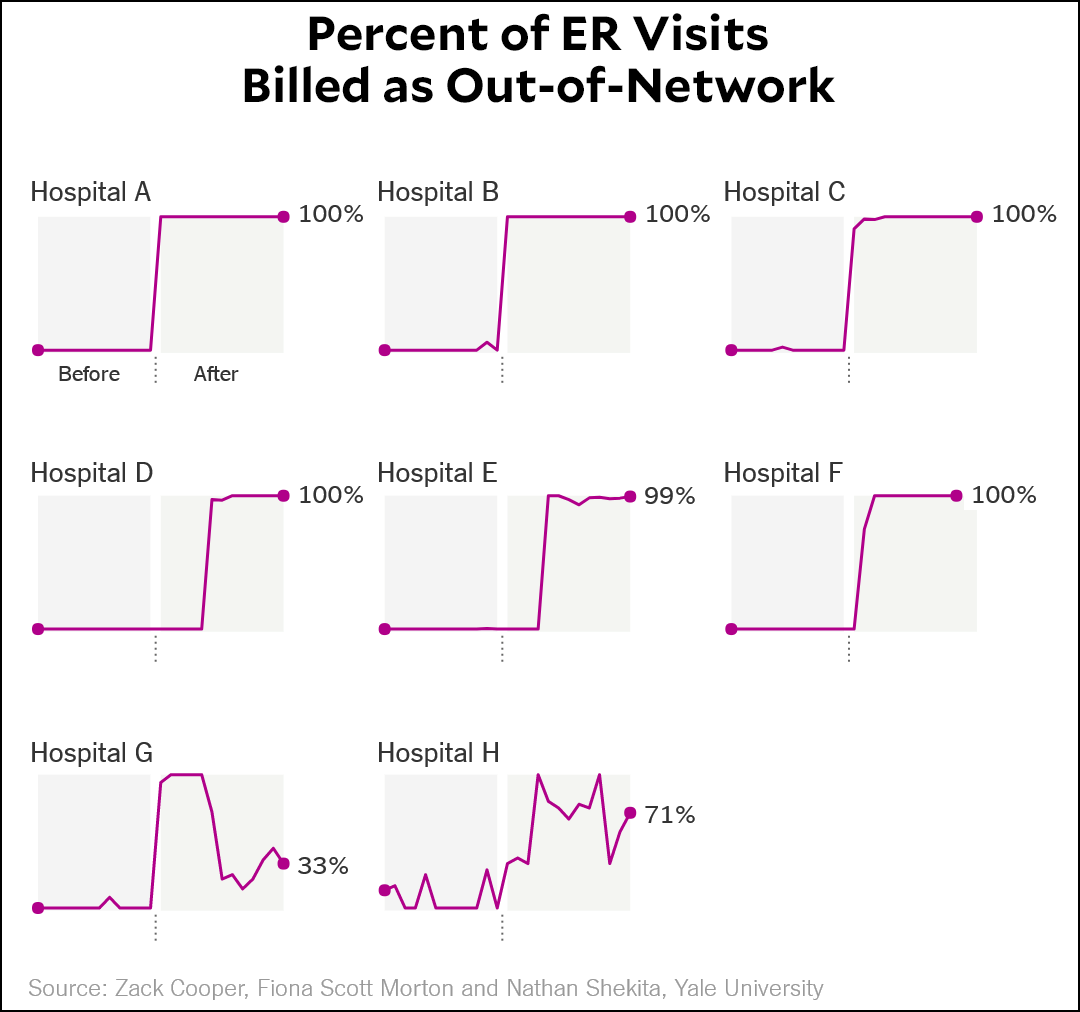I finished reading Elisabeth Rosenthal’s An American Sickness a few days ago, so the depradations of the American health care system are even fresher on my mind than usual right now. Unsurprisingly, one of the things she talks about is the surge in hospitals surreptitiously employing doctors who are out-of-network and therefore not covered by a patient’s insurance. The result is gigantic bills for people who thought—quite reasonably—that if they went to an in-network hospital they had nothing to worry about.
It turns out this scam is especially common in emergency rooms, precisely the place where patients are least likely to be thinking clearly. Today, the New York Times writes about what happens when ER services are outsourced to a company called EmCare. A chart is worth a thousand words, so here’s 8,000 words on the subject:

When EmCare takes over, out-of-network billing jumps almost instantly from about zero to about 100 percent. But is EmCare really the culprit? Here’s an excerpt from the Times piece:
Early last year, executives at a small hospital an hour north of Spokane, Wash., started using a company called EmCare to staff and run their emergency room….Although the hospital had negotiated rates for its fees with many major health insurers, the EmCare physicians were not part of those networks and were sending high bills directly to the patients.
….“Fiona Scott Morton, a professor at the Yale School of Management and a co-author of the paper, described the strategy as a “kind of ambushing of patients.” A patient who goes to the emergency room can look for a hospital that takes her insurance, but she almost never gets to choose the doctor who treats her.
….When emergency room doctors work for a company that has not made a deal with an insurer, they are free to bill whatever they want, insurers say. “The more they bill, the more they get paid,” said Shara McClure, an executive with Blue Cross of Texas.
Hospitals know perfectly well that patients expect doctors at in-network hospitals to also be in-network. That’s why hospitals negotiate with insurers in the first place: to get a place in the insurer’s network so they can attract the insurer’s customers.
Likewise, if they contract with a third-party firm to run a part of their hospital, they know perfectly well what will happen if the third-party hasn’t negotiated with the same set of insurers: their patients will get outrageous out-of-network bills.
Unlike patients, hospitals are sophisticated actors. They know enough to ask whether or not EmCare’s doctors belong to their networks. Obviously they did ask, and just as obviously the answer was no. But they signed up with EmCare anyway.
So whose fault is it that ERs are increasingly turned over to outfits like EmCare and that EmCare charges sky-high rates? It’s the fault of the hospitals who knowingly do this because it helps them run more profitably.
EmCare is hardly blameless here. Scams like this depend on everyone buying into a clever new idea. But if hospitals refused to deal with EmCare unless EmCare signed up for the same networks the hospital advertises itself belonging to, none of this would happen.














